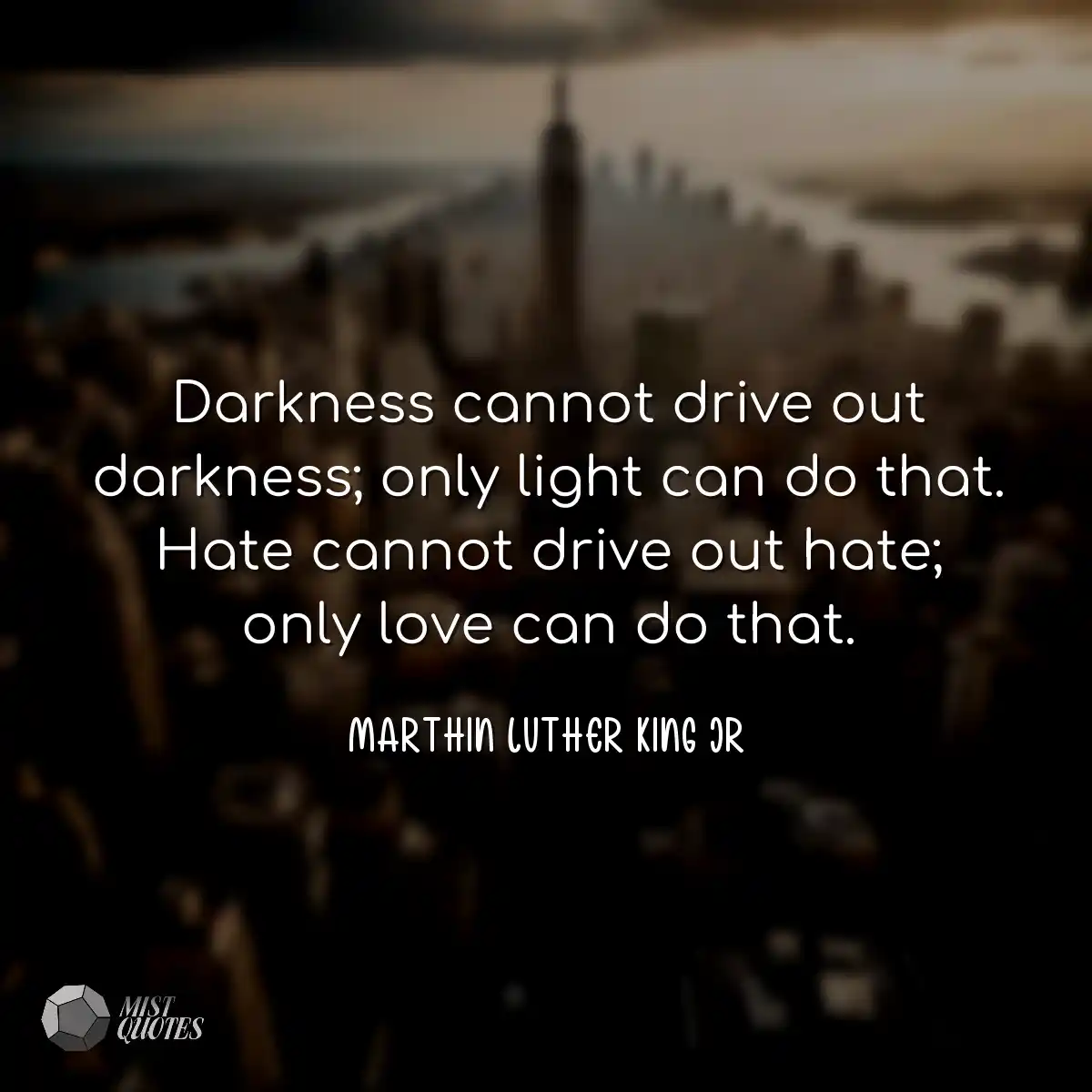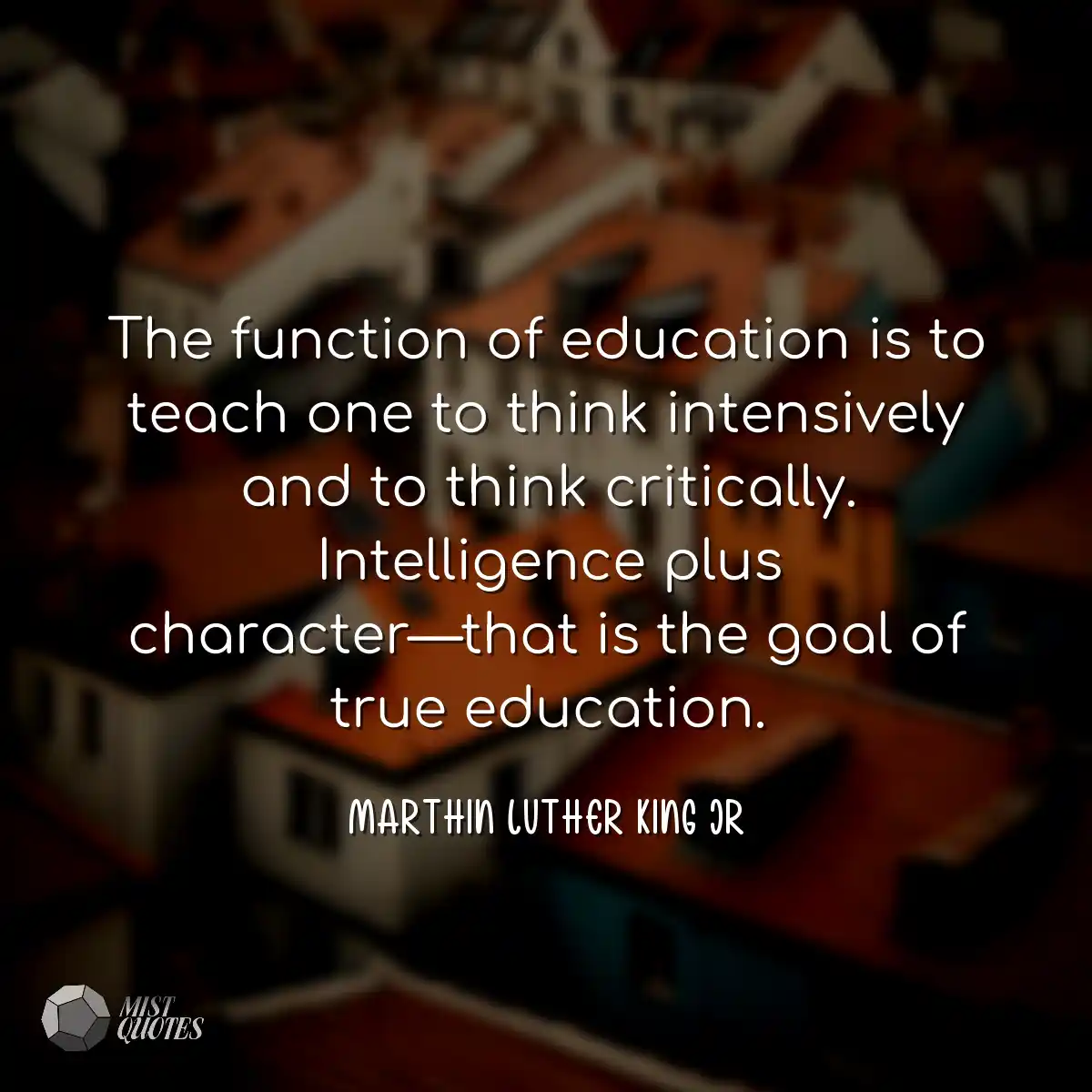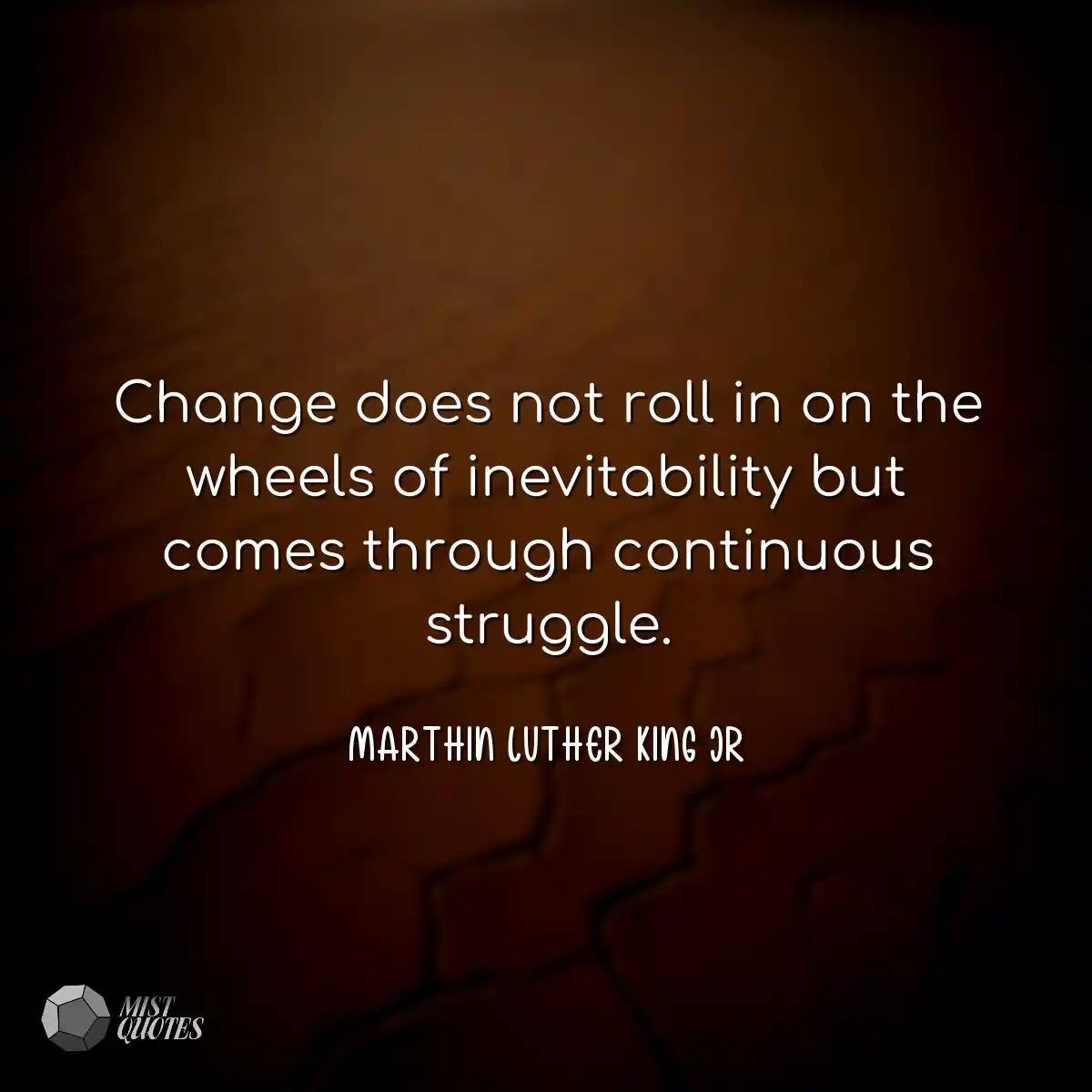
Marthin Luther King Jr
Baptist pastor and political activist

Darkness cannot drive out darkness; only light can do that. Hate cannot drive out hate; only love can do that.

Injustice anywhere is a threat to justice everywhere.

Our lives begin to end the day we become silent about things that matter.

The time is always right to do what is right.

Faith is taking the first step even when you don't see the whole staircase.

I have decided to stick with love. Hate is too great a burden to bear.

The ultimate measure of a man is not where he stands in moments of comfort and convenience, but where he stands at times of challenge and controversy.

We must accept finite disappointment but never lose infinite hope.

The function of education is to teach one to think intensively and to think critically. Intelligence plus character—that is the goal of true education.

Change does not roll in on the wheels of inevitability but comes through continuous struggle.
Martin Luther King Jr., a widely known and revered name across the world, was a pivotal figure in the United States civil rights movement. His unwavering dedication to justice, equality, and peace had a profound impact on American society and global consciousness. In this article, we will explore the remarkable achievements of Martin Luther King Jr. and his transformative role in the fight for human rights.
Martin Luther King Jr. was born on January 15, 1929, in Atlanta, Georgia. Raised in a middle-class family, he excelled academically and demonstrated exceptional leadership skills from a young age. King pursued higher education and obtained a Bachelor of Arts in Sociology from Morehouse College. Later, he earned a Bachelor of Divinity from Crozer Theological Seminary and a Ph.D. in Systematic Theology from Boston University.
One of King's earliest notable achievements came in 1955 when he led the Montgomery Bus Boycott. The boycott was a response to the arrest of Rosa Parks, an African American woman who refused to give up her bus seat to a white passenger. King's charismatic leadership and advocacy for nonviolent resistance propelled the boycott to success, resulting in a Supreme Court ruling that declared segregated buses unconstitutional.
In 1957, King co-founded the Southern Christian Leadership Conference (SCLC), an organization dedicated to promoting civil rights and combating racial inequality. As the president of the SCLC, King utilized his oratory skills and commitment to nonviolent protest to mobilize support for racial justice. The SCLC became a driving force behind many of the significant civil rights campaigns in the 1960s.
One of Martin Luther King Jr.'s most iconic moments was his leadership in the historic March on Washington for Jobs and Freedom in 1963. On August 28th, he delivered his famous "I Have a Dream" speech, which passionately articulated his vision of a future where people would be judged not by the color of their skin but by the content of their character. This powerful address became a defining moment in the civil rights movement and continues to resonate today.
King's tireless efforts to secure voting rights for African Americans culminated in the passage of the Voting Rights Act of 1965. The act prohibited racial discrimination in voting and removed barriers such as literacy tests and poll taxes. King's participation in marches, protests, and lobbying helped draw national attention to the issue and led to significant legislative change.
In recognition of his extraordinary contributions to the advancement of civil rights through nonviolent means, Martin Luther King Jr. was awarded the Nobel Peace Prize in 1964. At the age of 35, he became the youngest person to receive this prestigious honor. The award served as validation for King's dedication to justice and propelled his message of equality onto the global stage.
Martin Luther King Jr. left an indelible mark on history through his unwavering commitment to justice, equality, and nonviolent protest. His advocacy and leadership played a pivotal role in securing significant civil rights advancements, inspiring countless individuals to stand up against oppression and fight for a more just and inclusive society. Although his life was tragically cut short, his legacy continues to inspire generations to work towards the realization of his dream—a world where everyone is judged by the content of their character, regardless of their race or background.
Recent Quotes
"To help a friend in need is easy, but to give him your time is not always opportune."
Charlie Chaplin
"Life can be wonderful if you're not afraid of it. All it takes is courage, imagination… and a little dough."
Charlie Chaplin
